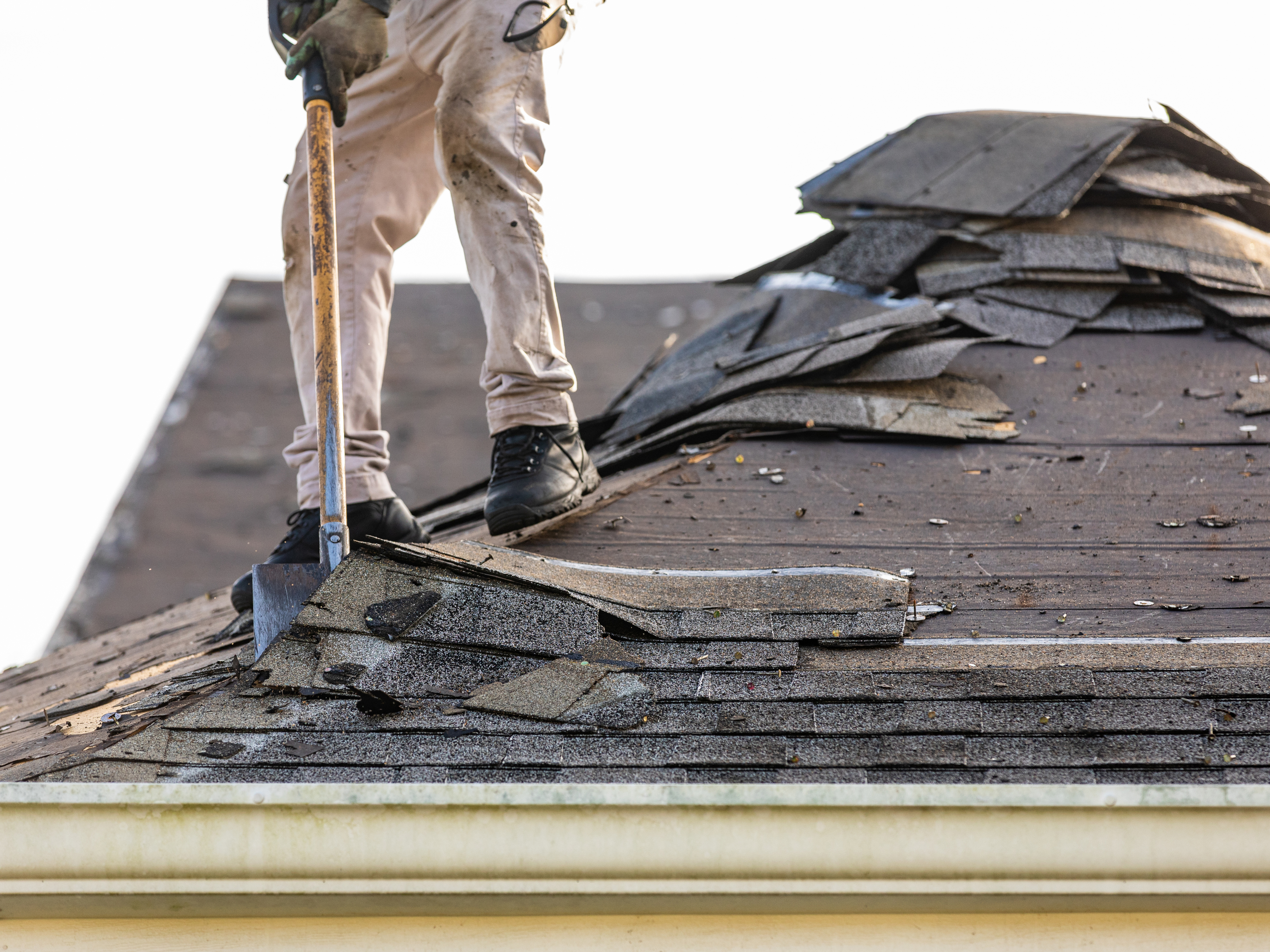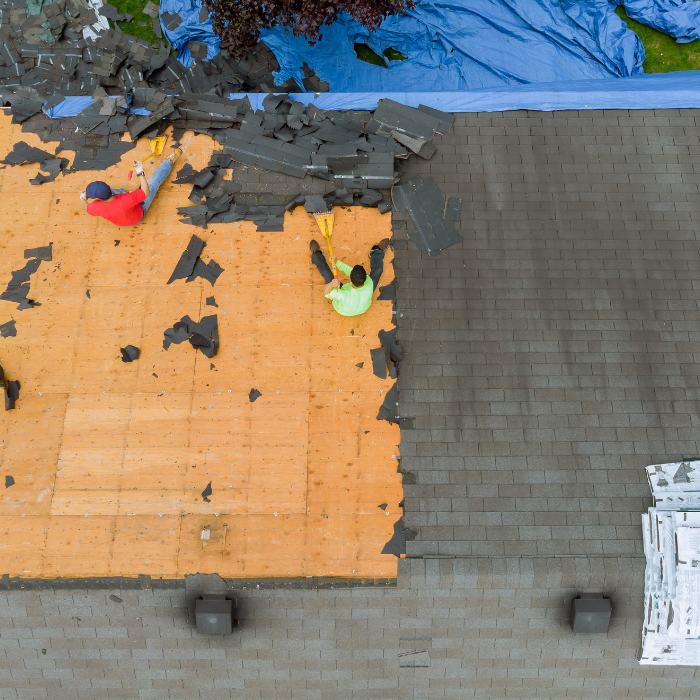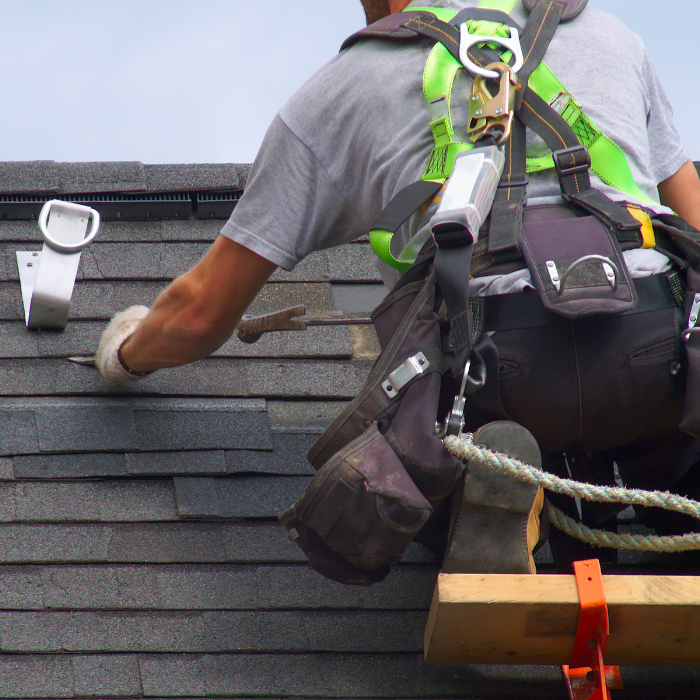Full Roof Replacement vs. Overlay: Which is Right for You?

Full Roof Replacement vs Roof Overlay: Choosing the Right Option for Your Home
Deciding to replace your roof is a big deal. It’s a significant investment, and you want to make sure you’re choosing the right option. Two common choices are a full roof replacement (tear-off) and a roof overlay. Let’s break down the pros and cons of each to help you make an informed decision.
Full Roof Replacement (Tear-Off)
A full roof replacement involves removing the old roofing materials completely before installing a new roof. This option might be the best choice for you if:
- Your roof is old or damaged. If your roof is showing signs of wear and tear, like missing shingles, leaks, or granules in your gutters, a full replacement is probably necessary.
- You want to improve your home’s energy efficiency. A new roof can help reduce your energy bills.
- You plan to sell your home soon. A new roof can increase your home’s value.
Benefits of a full roof replacement:
- New start: You get a fresh, clean slate with a new roof.
- Improved roof health: You can identify and fix any underlying issues, like rot or damage.
- Increased home value: A new roof can boost your property’s value.
- Potential energy savings: Newer roofing materials often offer better insulation.


Full Roof Replacement (Tear-Off)
A full roof replacement involves removing the old roofing materials completely before installing a new roof. This option might be the best choice for you if:
- Your roof is old or damaged. If your roof is showing signs of wear and tear, like missing shingles, leaks, or granules in your gutters, a full replacement is probably necessary.
- You want to improve your home’s energy efficiency. A new roof can help reduce your energy bills.
- You plan to sell your home soon. A new roof can increase your home’s value.
Benefits of a full roof replacement:
- New start: You get a fresh, clean slate with a new roof.
- Improved roof health: You can identify and fix any underlying issues, like rot or damage.
- Increased home value: A new roof can boost your property’s value.
- Potential energy savings: Newer roofing materials often offer better insulation.

Roof Overlay
A roof overlay involves installing new shingles over the existing ones. This option is often less expensive than a full replacement, but it’s important to consider the drawbacks.
Benefits of a roof overlay:
- Cost-effective: It’s generally cheaper than a full replacement.
- Faster installation: The process is quicker since there’s no removal of old materials.
- Less mess: Less debris and disruption to your home.
Drawbacks of a roof overlay:
- Hidden problems: You might not discover underlying issues like rot or damage.
- Added weight: Extra layers of shingles can put stress on your roof’s structure.
- Reduced lifespan: Your roof might not last as long as a full replacement.
- Less attractive: Multiple layers of shingles can look uneven.
Making Your Decision
The best choice for you depends on the condition of your roof, your budget, and your long-term goals. If you’re unsure, it’s always a good idea to get a professional inspection to assess the condition of your roof. A qualified roofing contractor can help you weigh the pros and cons and recommend the best option for your home.
Remember, investing in a new roof is a big decision, but it’s one that can protect your home and increase its value.
Don’t let roof repairs become a headache. Call Twin Peaks Roofing & Construction today at (330) 608-6966 or (330) 906-0295 for a free quote. We’re also available via email at info@twinpeaksroofs.com.

0 Comments